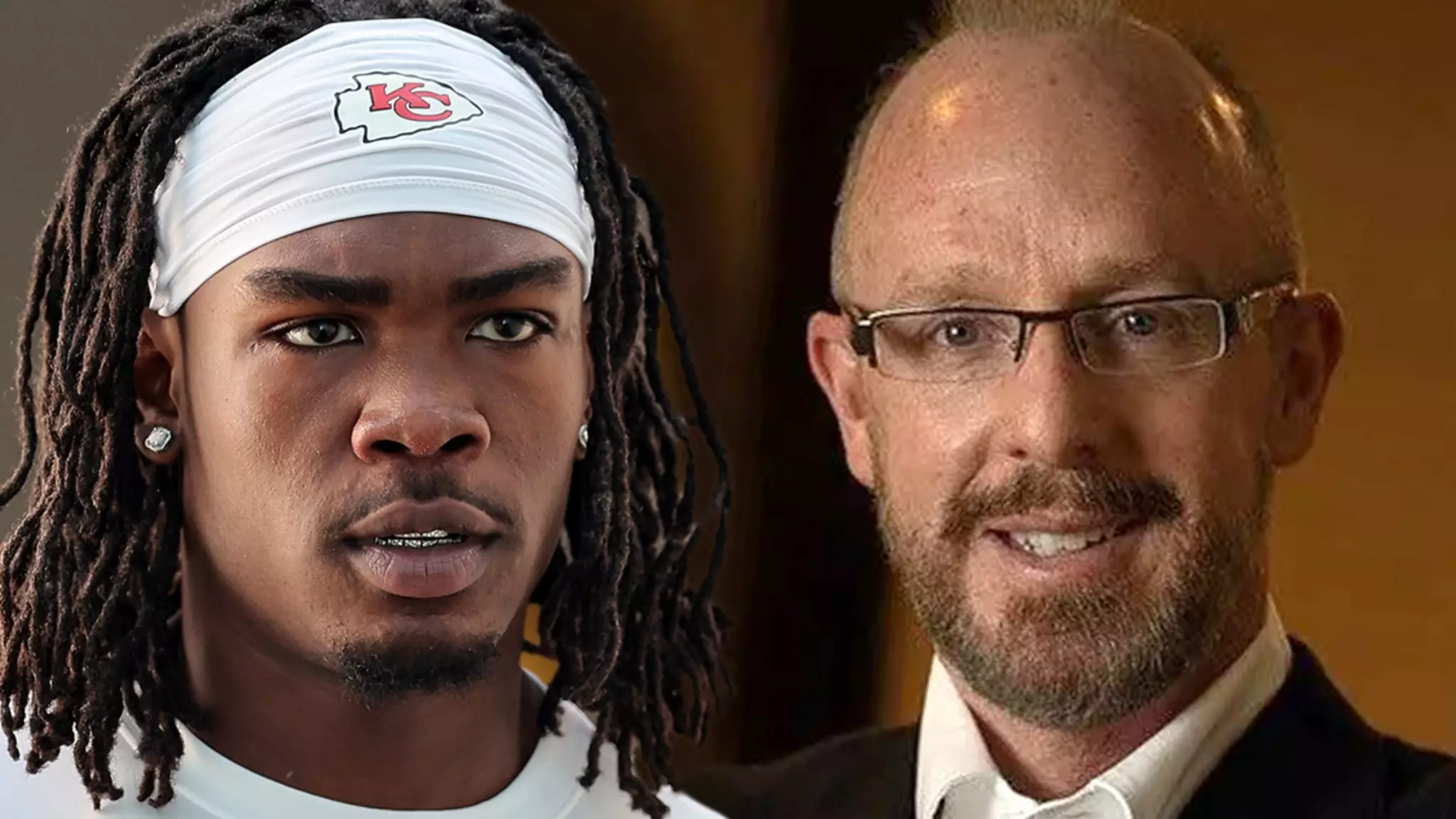The recent controversy surrounding Kansas City Chiefs receiver Rashee Rice starkly exposes the NFL’s inconsistent approach to discipline and the troubling implications of valuing athletic potential above accountability. While Rice is set to play despite his involvement in a high-profile car crash that injured an innocent victim, the league’s recent actions seem to prioritize on-field performance over the principles of justice and responsibility. This selective leniency raises unsettling questions about the league’s moral compass, especially as it appears to ignore the severity of the consequences faced by victims of player misconduct.
The NFL’s decision to delay disciplinary action until after September 30, despite Roy Rice’s criminal background and ongoing civil lawsuit, suggests a system that often prioritizes entertainment over ethics. Such inaction not only undermines public trust but sends a dangerous message: that players can evade meaningful repercussions so long as they can contribute on game day. The league’s inconsistent treatments — notably, the swift suspension of Jordan Addison after legal proceedings — demonstrate a biased system that values star power and marketability above integrity and victim justice.
Justice Delayed Is Justice Denied: A System That Favors the Privileged
The situation with Rice is emblematic of a deeper problem: the NFL’s failure to hold its athletes accountable in a manner that reflects broader societal standards of responsibility. The fact that Rice’s victim, Kathryn Kuykendall, is still battling injuries and dealing with the aftermath of a violent hit-and-run—while Rice prepares to return to play—strikes a nerve. Her lawyer’s pointed comments about the league “sending Rashee to São Paulo to live it up”—a stark metaphor for prioritizing spectacle over sincerity—highlight how the system often protects players at the expense of genuine justice.
Furthermore, Rice’s reckless actions—speeding at over 100 MPH, racing, and fleeing the scene—are behaviors that any responsible motorist would be severely penalized for, yet in sports, they often seem to be discounted as “part of the game” or “bad judgment”. The narrative constructed around Rice’s alleged “healing” and readiness to play ignores the clear indication that, morally and legally, he still bears significant responsibility for his actions. It is not enough for him to claim physical recovery; maturity and accountability demand that he confront and承担 the consequences of his reckless decisions.
Talent Versus Ethics: A Dangerous Cultural Message
What is perhaps most troubling about Rice’s situation is the message it sends to young athletes and aspiring players. The league’s apparent willingness to shield players from consequences enforces a hazardous misconception: that exceptional talent can excuse egregious misconduct. In a society increasingly attentive to issues of moral responsibility, the NFL’s stance risks normalizing a culture where athletes are above the law, their on-field contributions outweighing their off-field ethics.
The public and fans must grapple with this problematic narrative. Talent and potential should never be used as bargaining chips to bypass justice. Instead, exemplifying accountability and integrity must become the league’s core values. By seemingly turning a blind eye to Rice’s actions, the NFL inadvertently promotes an environment where reckless behavior is tolerated—on the field and off—and where victims are left to pick up the pieces.
The True Cost of Elite Performance Without Accountability
The real tragedy here is not only that a talented player might play before he is fully held accountable, but that the integrity of the sport itself is compromised. Sports can serve as a mirror to society—reflecting its values, priorities, and sense of justice. When the NFL sidesteps meaningful discipline, it risks eroding public trust and diminishing the moral authority of its platform.
Additionally, the legal battles and criminal charges hanging over Rice’s head serve as painful reminders that athletic performance can never justify negligence or criminal behavior. The league’s palpable ambivalence suggests a prioritization of spectacle over the principles of responsibility. This attitude fosters a culture where players see their profession as a shield against real-world consequences, an attitude that is ultimately destructive for everyone involved.
As fans, legal observers, and moral watchdogs demand accountability, the NFL’s handling of this situation will reveal whether it truly values character or merely prioritizes winning at all costs. The decision to enable Rice’s return before justice is fully served risks legitimizing a double standard that undermines the very fabric of fair play and societal morality. It’s time for the league to confront its own contradictions and reaffirm its commitment to integrity over mere spectacle.

Leave a Reply